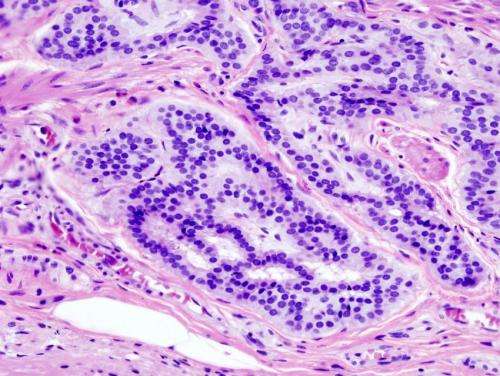#Immunotherapy may be effective for a subgroup of metastatic colorectal cancer patients, study finds

“#Immunotherapy may be effective for a subgroup of metastatic colorectal cancer patients, study finds”

Researchers at City of Hope, a world-renowned research and treatment center for cancer, diabetes and other life-threatening diseases, looked at the most common type of metastatic colorectal cancer and discovered that these patients are more responsive to checkpoint blockade immunotherapy, an innovative treatment that helps the immune system recognize and attack cancerous cells, if tumors have not spread to the liver.
Colorectal cancer is the third most common cancer and the leading cause of cancer-related deaths in the United States, according to the Centers for Disease Control and Prevention. City of Hope’s findings, published in JAMA Network Open today, are important because immunotherapy traditionally has been seen as ineffective against microsatellite stable (MSS) colorectal cancer, which represents 95% of all metastatic colorectal cancer cases. These patients have few treatment options once they become resistant to chemotherapy.
The retrospective study included 95 City of Hope patients with MSS metastatic colorectal cancer who received immune checkpoint inhibitor PD-1/PD-L1 targeted therapy once their disease became resistant to chemotherapy. The median time of disease progression for patients who did not have liver metastases was four months compared to one and a half months for those whose cancer had spread to the liver.
“When we stratified the patients by the presence or absence of liver metastases, we noted that about 20% of patients without liver metastases had a major response to anti-PD-1 or anti-PD-L1 therapy, while none of the patients with liver metastases experienced a positive response,” said Marwan Fakih, M.D., co-director of the Gastrointestinal Cancer Program and the Judy & Bernard Briskin Distinguished Director of Clinical Research at City of Hope. “Colorectal cancer patients without liver metastases could benefit from immunotherapy considerably more than patients with liver metastases.”
When colorectal cancer spreads to the liver, some patients can undergo surgery to remove all tumors; however, sometimes these tumors cannot be removed surgically. That’s when chemotherapy is used, but “chemotherapy is destined to stop working, and we have to look into additional treatment options,” Fakih said, adding, “To our knowledge, this is the largest study to evaluate the impact of PD-1/PD-L1 targeting on patient response as stratified by site of metastatic disease.”
The clinical significance, Fakih said, is that advanced colorectal cancer patients with liver metastases should not be considered for PD-1/PD-L1-based therapy. Instead, other novel investigational strategies are recommended.
“For patients without liver metastatic disease, PD-1/PD-L1-based therapies, particularly those combining these agents with tyrosine kinase inhibitors (TKI), hold significant promise,” he said, noting that TKIs that target the tumor vasculature modify the tumor environment and make it more responsive to PD-1/PD-L1 therapy.
When colon cancer spreads to the liver
Clinical Response to Immunotherapy Targeting PD-1/PD-L1 in Patients with Treatment Resistant Microsatellite Stable Colorectal Cancer with and without Liver Metastases, JAMA Network Open (2021).
Citation:
Immunotherapy may be effective for a subgroup of metastatic colorectal cancer patients, study finds (2021, August 9)
retrieved 9 August 2021
from https://medicalxpress.com/news/2021-08-immunotherapy-effective-subgroup-metastatic-colorectal.html
This document is subject to copyright. Apart from any fair dealing for the purpose of private study or research, no
part may be reproduced without the written permission. The content is provided for information purposes only.
If you liked the article, do not forget to share it with your friends. Follow us on Google News too, click on the star and choose us from your favorites.
For forums sites go to Forum.BuradaBiliyorum.Com
If you want to read more Like this articles, you can visit our Science category.




